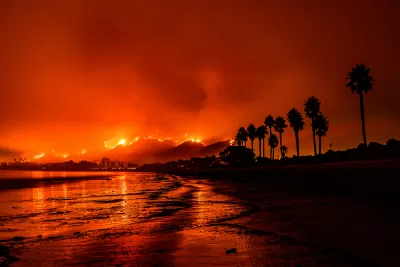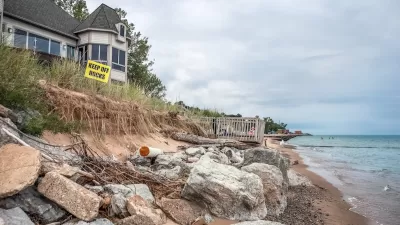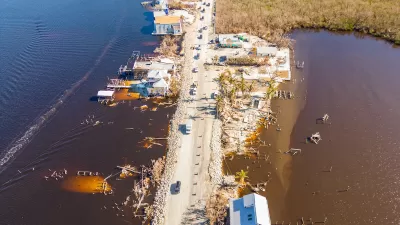The proposed state general obligation bond would address the need to protect communities and natural resources from the impacts of climate change.

California is increasingly experiencing the impacts of climate change, including sea level rise, increased severity and frequency of wildfires, changes in precipitation that increase the risk of both drought and flooding, and increases in temperatures that can adversely impact air quality, public health, and habitats.
State legislators are now considering issuing a general obligation bond to address the need to protect communities and natural resources from the impacts of climate change. If approved by both houses and signed by the Governor, California voters would see the $15.5 billion bond measure on a 2024 statewide ballot in either March or November.
The initiative dedicates funding for projects to:
- Reduce fire risk near communities and ensure forests are healthy enough to withstand more intense wildfires;
- Reduce the risk of catastrophic flood events by slowing and capturing runoff, which will improve groundwater infiltration and help to stabilize drinking water supplies;
- Protect coastal communities from sea-level rise; and
- Help urban communities adapt to rising temperatures by reducing heat-island effects through greening projects such as parks and supportive measures such as cooling centers.
General obligation bonds are debt that is secured by the General Fund; the debt service on bonds issued by the state must be paid on an annual basis. Fully paying off a bond issue can take decades (sometimes 30 or more years). Bonds issued by the State of California are able to obtain favorable financing because interest on these bonds is tax exempt. Per the California Constitution, voters must approve general obligation bonds in excess of $300,000. There are two pathways to the ballot for general obligation bonds that exceed this $300,000 threshold: 1) through an act of the Legislature; and, 2) via the citizens’ initiative process.
FULL STORY: $15.5 Billion 'Climate Resiliency Bond' Getting Ready for Voters on 2024 Ballot

Trump Administration Could Effectively End Housing Voucher Program
Federal officials are eyeing major cuts to the Section 8 program that helps millions of low-income households pay rent.

Planetizen Federal Action Tracker
A weekly monitor of how Trump’s orders and actions are impacting planners and planning in America.

The 120 Year Old Tiny Home Villages That Sheltered San Francisco’s Earthquake Refugees
More than a century ago, San Francisco mobilized to house thousands of residents displaced by the 1906 earthquake. Could their strategy offer a model for the present?

HSR Reaches Key Settlement in Northern California City
The state’s high-speed rail authority reached an agreement with Millbrae, a key city on the train’s proposed route to San Francisco.

Washington State Legislature Passes Parking Reform Bill
A bill that would limit parking requirements for new developments is headed to the governor’s desk.

Missouri Law Would Ban Protections for Housing Voucher Users
A state law seeks to overturn source-of-income discrimination bans passed by several Missouri cities.
Urban Design for Planners 1: Software Tools
This six-course series explores essential urban design concepts using open source software and equips planners with the tools they need to participate fully in the urban design process.
Planning for Universal Design
Learn the tools for implementing Universal Design in planning regulations.
Ada County Highway District
Clanton & Associates, Inc.
Jessamine County Fiscal Court
Institute for Housing and Urban Development Studies (IHS)
City of Grandview
Harvard GSD Executive Education
Toledo-Lucas County Plan Commissions
Salt Lake City
NYU Wagner Graduate School of Public Service





























